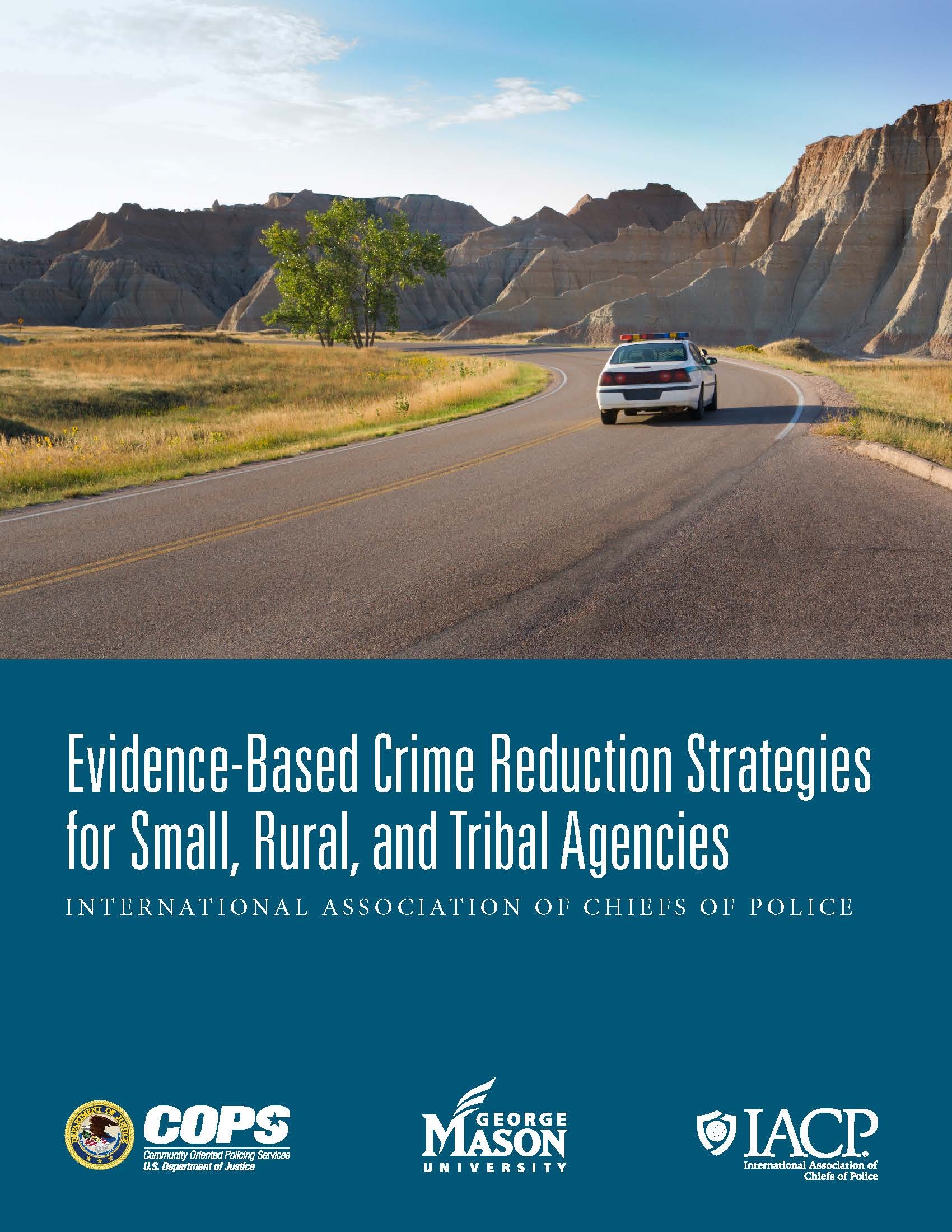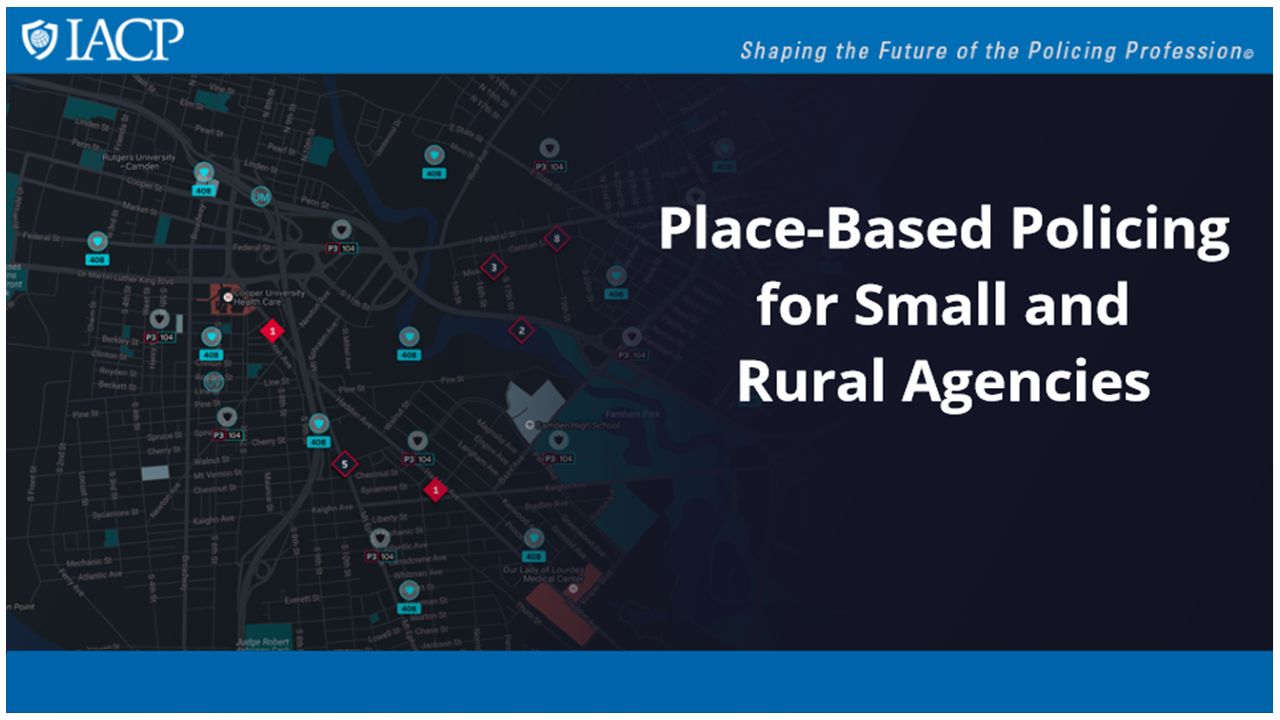Contact Us
To provide feedback on the Community Policing Dispatch, e-mail the editorial board at CPDispatch@usdoj.gov.
To obtain details on COPS Office programs, publications, and resources, contact the COPS Office Response Center at 800-421-6770 or AskCopsRC@usdoj.gov

U.S. Department of Justice
Office of Community Oriented Policing Services
Washington, DC 20530

Despite the increase in the national average levels of violent crime in rural areas, the needs of law enforcement agencies in these communities often are not discussed in conversations about the broader demands of the policing profession.1
Over the years, rural law enforcement agencies have become accustomed to making the most minimal resources to meet their operational and logistical needs and protect their communities. What works in smaller and rural agencies is difficult to determine when much of what is known about effective policing practices has been studied in larger, urban agencies.
Many smaller and rural agencies are challenged by limited financial resources to access and acquire equipment and training resources to reduce violence and promote public safety in their communities. However, officers in small and rural agencies often have strong interpersonal ties with residents and are deeply integrated socially in their communities, which can strengthen community confidence and trust in the police. This foundation of legitimacy and trust enhances collaboration and problem-solving between the police and their communities, which lessens the strain on small and rural agencies’ limited resources.
An additional way to enhance community-oriented policing is by using evidence-based policing practices (EBPP). EBPP systematically integrate the most current and effective research into police decision-making. For smaller and rural agencies, EBPP are adaptable to their specific resources, personnel, crime trends, and communities.2
To explore and collect what works in policing and translate those conclusions for effective and practical crime reduction and community policing strategies tailored for small, rural, and tribal agencies, the COPS Office partnered with the International Association of Chiefs of Police (IACP) and the Center for Evidence-Based Crime Policy (CEBCP) at George Mason University.
The IACP narrowed the scope of what is most needed to support these law enforcement agencies using feedback from focus groups with police leaders and executives from small, rural, and tribal agencies to better understand the needs of these agencies and their communities, as well as an extensive literature review conducted by CEBCP.To promote the conclusions from the focus groups and literature review, the IACP and project partners published the Evidence-Based Crime Reduction Strategies for Small, Rural, and Tribal Agencies. This guide presents information on EBPP in small, rural, and tribal agencies, based on their unique needs, challenges, and strengths.
 Building on the guide, and to provide more accessible and tailored resources for small and rural police agencies, the IACP also created the “Place-Based Policing for Small and Rural Agencies” online training as a practical resource to promote EBPP in crime-reduction strategies. In particular, the training covers practical community-oriented policing practices that can be applied by small and rural agencies to enhance their place-based crime reduction efforts. Interactive case studies of strategies used in small and rural agencies that have implemented EBPP are included along with supplementary resources and promising practices sourced from the focus groups.
Building on the guide, and to provide more accessible and tailored resources for small and rural police agencies, the IACP also created the “Place-Based Policing for Small and Rural Agencies” online training as a practical resource to promote EBPP in crime-reduction strategies. In particular, the training covers practical community-oriented policing practices that can be applied by small and rural agencies to enhance their place-based crime reduction efforts. Interactive case studies of strategies used in small and rural agencies that have implemented EBPP are included along with supplementary resources and promising practices sourced from the focus groups.
The training is available on the COPS Training Portal, an online repository of trainings and resources offered free of charge to all law enforcement officers, civilian staffers, and stakeholders in the United States. With more than 27,000 registered users having access to three dozen trainings and resources, the COPS Training Portal is a cornerstone of the COPS Office’s portfolio. The course will also be available on IACPlearn.
To start the training go to the COPS Office Training Portal Place-Based Policing for Small and Rural Agencies page and to learn more about the online training and access project resources, please visit the IACP’s project page.
Rachel Jensen
Project Coordinator
IACP
References:
1. Alan Greenblatt, "In Rural America, Violent Crime Reaches Highest Level in a Decade," Governing, July 2018. https://www.governing.com/topics/public-justice-safety/gov-crime-rural-urban-cities.html; Shibani Mahtani, “‘Nothing but You and the Cows and the Sirens’ – Crime Tests Sheriffs Who Police Small Towns; Drugs and Associated Violence Strain Rural Law Enforcement,” Wall Street Journal, May 12, 2018, https://www.wsj. com/articles/nothing-but-you-and-the-cows-and-the-sirens-crime-tests-small-town-sheriffs-1526122800
2. Chief Michael L. Brown, "Police Research — An Important Tool for Police, Often Underutilized," June 20, 2020, blog post, Office of Justice Programs: https://nij.ojp.gov/topics/articles/police-research-important-tool-police-often-underutilized.
Subscribe to Email Updates
To sign up for monthly updates or to access your subscriber preferences, please enter your email address in the Subscribe box.






